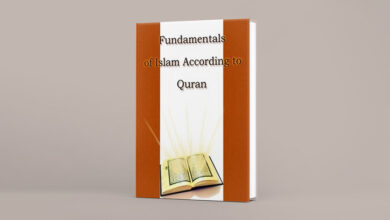
Recommended Prayers (Arabic: الصلوات المستحبة) or Nawāfil (Arabic: النَوافِل) are prayers legislated in jurisprudence and great rewards are mentioned for performing them. The rules of recommended prayers are different from the rules of obligatory prayers in some cases and performing recommended prayers is easier. Daily recommended prayers are prayers which are prayers recommended for certain times, such as the beginning of the month, prayers recommended for certain places such as the prayer in the mosque of Jamkaran, prayers for the fulfillment of requests such as the prayer for increasing daily sustenance.
Attributes of Recommended Prayers
Recommended prayers have differences from and similarities with obligatory prayers. However, not all recommended prayers are the same; and some of them have special rules. Some of the attributes of recommended prayers are as follows:
- Having wudu for them is obligatory
- Speaking, eating and drinking during performing them has problem
- They are two-rak’as except watr prayer which is one-rak’a.
- They do not require adhan and iqama.
- Reciting a sura after Sura al-Fatiha (Qur’an 1) is not necessary in them, unless there is a certain instruction such as Ghufayla prayer.
- A part of a sura can be recited after Sura al-Fatiha
- After Sura al-Fatiha, some suras can be recited.
- Sahw prostration and caution prayer are not prescribed for them
- Adding up foundational elements of the prayer such as ruku’ and prostration by mistake does not harm them
- They can be performed while sitting, lying down or moving
- A part of them can be performed while standing and a part of them can be performed in sitting posture
- It is permissible to optionally cut them
- They can be performed on behalf of dead persons. Their rewards can be shared with others.
- Upon having doubts regarding the number of rak’as, the praying person may assume himself performing any rak’a and continue the prayer.
Recommended prayers are not performed in congregation. In the view of Shi’a jurists, performing recommended prayers is not permissible to be performed in congregation except the prayer for raining. However, some Shi’a jurists consider performing Eid prayers to be recommended in congregation during the Age of Occultation.
According to the common view among jurists, Eid prayers should be performed in congregation whether considered recommended or obligatory. The Yusuf al-Bahrani attributed it to some Shia jurists such as Abu l-Salah al-Halabi and al-Shahid al-Awwal that they considered performing Ghadir prayer in congregation permissible. Al-Bahrani considered performing this prayer in congregation unlawful. On the opposite, most Sunni jurists consider performing all recommended prayers, such as Tarawih prayer, in congregation permissible. Malikis and Hanafis considered some recommended prayers, other than the recommended prayers of the month of Ramadan and Ayat prayer, disapproved to be performed in congregation. In the views of Shia, performing Tarawih prayer in congregation is an illegitimate innovation.
Types of Recommended Prayers
- Daily nawafil, performed before or after the obligatory prayers.
- Prayers, performed in specific times of the day, such as night prayer.
- Prayers prescribed in the names of the Infallible Ones (a).
- Prayers prescribed in the names of some of the companions of the Prophet (s) and Imams (a), such as the prayer of Ja’far al-Tayyar
- Prayers prescribed to be performed in specific days, such as the prayer of the beginning of the month
- Prayers prescribed to be performed in specific places; such as the prayer in the mosque of Jamkaran
- Prayers prescribed to be performed for requests and solving spiritual and worldly problems; such as the prayer for increasing daily sustenance.
Famous Recommended Prayers
Some recommended prayers have become more famous than others among Muslims including the ones below:
- The prayer of Ja’far al-Tayyar which has been considered influential for forgiveness of the sins and fulfillment of the supplications and has been transmitted from many Shia and Sunni sources and some sources considered it frequently transmitted.
- Prayer at the burial night which is performed at the first night after burial of a person.
- Night prayer which is among the most famous recommended prayers and performing it has very much been recommended.




